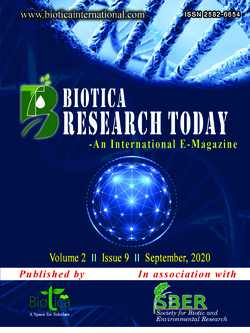
Breeding Guidelines to Reduce Genetic Disorders in Dogs
Ahlawat, A. R.*
College of Veterinary Science & Animal Husbandry, Junagadh, Gujarat (362 001), India
Odedra, M. D.
College of Veterinary Science & Animal Husbandry, Junagadh, Gujarat (362 001), India
Dongre, V. B.
Subject Matter Specialist, College of Veterinary Science & Animal Husbandry, Udgir, MAFSU, Nagpur, Maharashtra (440 006), India
DOI: NIL
Keywords: Autosomal, Dominant, Recessive, Selective breeding
Abstract
Like humans, dogs can suffer from genetic health problems. Years of selective breeding have predisposed some dog breeds and made them more susceptible to adverse health conditions, diseases and complications. Dog breeds like Siberian Huskies, German Shepherd Rottweilers, Dachshunds and Boxers are known to suffer from many hereditary disorders. Canine inherited disorders are actually more widespread than indicated in their original studies, which open up the door for several future scientific investigations. The need of the hour is better collaboration between different stake holders like dog fanciers, breeders, owners, industry and academics which shall help to report and provide solutions to these conditions across breeds. The potential to test the dog for multiple genetic disorders at single go has existed and is being carried out the need of hour is to harness the potential to make better selection decisions and pet care for the overall welfare of dogs.
Downloads
not found
Reference
Bell, J.S. (2003). Breeding Strategies for the Management of Genetic Disorders. Retrieved from https://www.vin.com/doc/?id=3848654.
Pedersen NC, Shope B, Liu H (2017). An autosomal recessive mutation in SCL24A4 causing enamel hypoplasia in Samoyed and its relationship to breed-wide genetic diversity. Canine Genet Epidemiol. 4:11.
Shearin AL, Ostrander E.A. (2010). Leading the way: canine models of genomics and disease. Dis Model Mech. 3:27–34.
